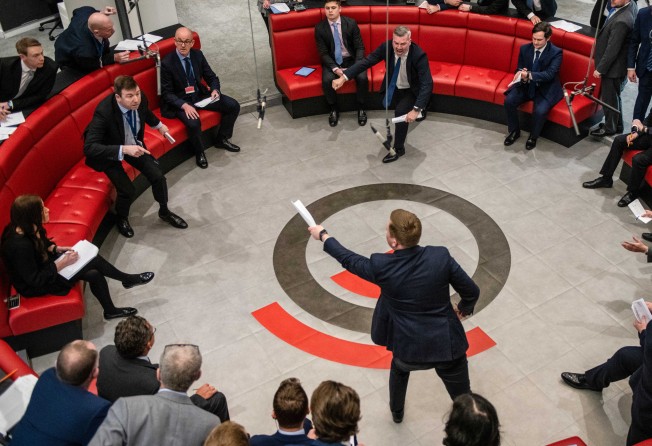.jpg?itok=zSWXqQCw)
13:54
HKEX CEO Nicolas Aguzin on the future of Hong Kong’s capital market

Britain’s financial regulator has opened an enforcement investigation into the London Metal Exchange’s (LME) handling of a chaotic period in the nickel market last year that led to a temporary trading suspension and prompted a series of lawsuits from investors.
The Financial Conduct Authority (FCA) said it had reviewed the events that forced the Hong Kong Exchanges and Clearing (HKEX)-owned bourse to halt trading in nickel and cancel thousands of trades in the early hours of March 8, 2022, and would now carry out an inquiry into some of the exchange’s conduct, as well as its systems and controls, between January 1 and March 8, 2022.
“The LME has implemented changes to its control framework and committed to a wider package of market reform, informed by the recommendations of an external review,” the regulator said in a statement. “The FCA is encouraged by the LME’s focus on increasing the transparency of OTC trading to support robust risk management in its on-exchange trading.”
Separately, the Bank of England said that it planned to appoint an independent monitor to assess and report on actions by LME Clear, the bourse’s clearing house, to address shortcomings in its governance and risk management.
“The LME will cooperate fully with this process and will continue to take the appropriate steps to ensure the long-term health, efficiency and resilience of its market,” Matthew Chamberlain, the LME CEO, said in a statement.
The announcements by financial regulators came nearly two months after an independent review by consultant Oliver Wyman recommended the bourse tighten its rules to improve its ability to identify and prevent future market distortions similar to those that triggered the nickel chaos.
The LME is expected to unveil an implementation plan in response to the independent review’s recommendations by the end of the first quarter, including “initiatives that are already under way” to strengthen its business and markets, the bourse said.
Later this month, the bourse is expected to resume trading of nickel during business hours in Asia after a pause of more than a year, which the LME hopes will help with liquidity issues in the market. Trading will be available beginning at 1 am GMT/9 am HKT.

In early March of last year, nickel prices, alongside other commodities, rose dramatically after Russia’s invasion of Ukraine stoked concerns about supply shortages. Prices surged by as much as 250 per cent in just over 24 hours, squeezing dozens of short-sellers, including the world’s largest stainless steel producer, Tsingshan Holding Group of China.
The bourse has said the nickel market had become “disorderly” in the early hours of March 8, 2022, and the decision was made to cancel trades in order “to take the market back to the last point in time at which the LME could be confident that the market was operating in an orderly way”.
It was only the second time in the 146-year-old bourse’s history that it had cancelled trades in one of its metals. Nickel trading was halted for more than a week and had a chaotic restart.
However, some traders criticised the bourse’s decision, saying the exchange favoured some investors over others by cancelling completed trades that day.
US hedge fund Elliott Management and quantitative investing firm Jane Street Global Trading sued the exchange in London, seeking up to £471 million (US$572 million) in damages.
The Managed Funds Association (MFA), a trade body representing some of the world’s biggest hedge funds, separately filed a formal complaint with the LME in June over the bourse’s handling of the nickel situation and has called for a “robust regulatory review” to address the bourse’s failings.
“Investor confidence in the LME was badly shaken by the crisis and must be rebuilt,” said Jennifer Han, head of global regulatory affairs at the MFA. “Alternative asset managers require sound and predictable markets to deliver reliable returns for institutional investors such as pensions, especially during times of market volatility.”
LME has already introduced a series of measures to try to avoid similar situations in the future, including upper and lower daily price limits for contracts that require metals to be physically delivered when a futures contract expires.
Last summer, the bourse began requiring its members to report their OTC positions on a weekly basis for these metals, including contracts for aluminium, copper, nickel, tin and zinc.